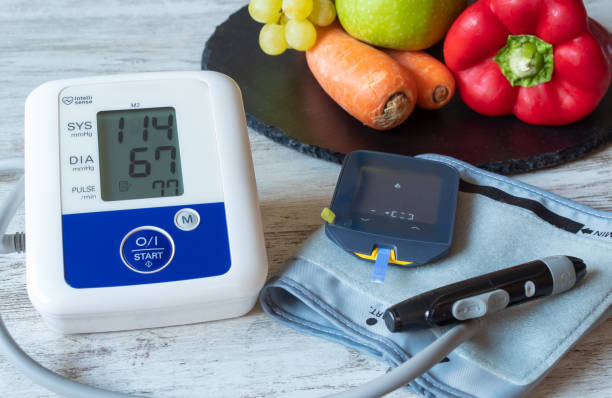The #1 Rated Blood Sugar Formula
Relationship Between High Blood Pressure And Diabetes

Most people with type 2 diabetes also suffer from hypertension, which has very few noticeable symptoms, can lead to enlarged hearts and further complicate and worsen diabetes symptoms.
If you have diabetes, you should have your blood pressure checked by a health care professional at least once a year. This check is part of the annual review.
If your blood pressure is high (called hypertension), you will need treatment to lower it. This is because it puts strain on the blood vessels and can damage them. This can make it harder for blood to flow through the body and reach all-important areas, such as the heart. And this increases the risk of a heart attack or stroke. It also puts you at a higher risk of developing all kinds of diabetes complications, such as serious problems with your feet, eyes and kidneys.
You can do a lot to help control your blood pressure, as your lifestyle has a direct impact on it. However, many people need to take medication to treat high blood pressure and reduce the risk of complications.
It is very important to know that you may have high blood pressure and feel fine, as there are usually no symptoms. But even if you feel healthy, high blood pressure damages blood vessels and you need to get treatment. That's why you should never miss a blood pressure test - it's free and takes two minutes.
What is the recommended blood pressure range for people with diabetes?
It is important to keep blood pressure in a healthy range. This reduces the chances of developing further health complications.
Your blood pressure should be below 140/80 mmHg for people with diabetes, or below 130/80 mmHg if you have kidney or eye disease, or any condition that affects blood vessels and blood supply to the brain. However, it is important to talk to your health care team about your individual goal.
How to lower blood pressure
Lowering blood pressure largely depends on making positive lifestyle changes. However, we know that it is not always that simple, and some people will need the help of medication.
- Maintain a healthy weight
- Be more active
- Decrease the amount of salt in your diet
- Stop Smoking
- Drink less alcohol
- Try different ways to deal with stress
- Drink less caffeine
- Your healthcare team can help you make these changes. Find out what health checks and services you are eligible for.






